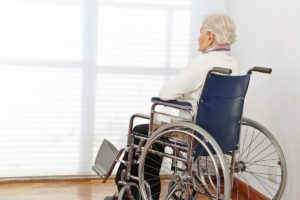
They may fail to monitor and give them the required attention, leading to feelings of loneliness, which could worsen their dementia condition. Here is how isolation can affect dementia in your elderly loved one and the steps to take to hold the liable parties accountable.
How Isolation Can Affect Dementia in the Elderly
Unfortunately, seniors with dementia are at a higher risk of deteriorating if they don’t have the support they need. Dementia is a progressive condition whose symptoms can change and worsen over time when patients are left unattended. The condition may dramatically affect a person’s ability to live independently, look after themselves, and carry out daily tasks.
Social interactions can significantly improve the life of seniors with dementia. Therefore, nursing homes must take extra measures to encourage socializing as part of caring for and improving the well-being of your loved one. Neglecting and isolating individuals could significantly worsen their dementia symptoms in the following ways:
1. Isolation Affects Mental Well-Being
Older adults often feel lonely and bored. Therefore, nursing homes are required to offer activities that will keep them occupied and mentally alert. Isolation increases feelings of loneliness, which can be very damaging to patients with dementia.
Seclusion means they will have no one to talk to regularly, potentially leading to stress, anxiety, and depression. These conditions can significantly affect your loved one’s mental clarity and ability to focus, which may worsen their dementia symptoms.
2. Increased Falls
An older adult with dementia may have trouble finding their way around and paying attention to hazards. They may also have problems with balance and strength. Therefore, they may need help moving around. Unfortunately, isolation creates situations where patients find themselves alone. This will increase the risk of falls. Falls can lead to physical impacts such as head trauma, brain injury, or broken bones. Your loved one may as well become traumatized, leading to deterioration in daily life activities.
3. Lack of Necessary Caregiver Attention
Dementia makes it difficult for seniors to think clearly and care for themselves. Therefore, they need quality, personalized care, and support. Caregivers can only create flexible strategies and provide adequate care when they spend time with their patients and connect with them. Isolating older people makes it difficult to identify changes and enact effective solutions.
4. Inconsistent Routines
Seniors with dementia often thrive with consistent daily routines. Their caregivers should develop a daily routine that helps them know what to expect. Isolating and neglecting them would lead to inconsistent patterns that could worsen their condition. When left unattended, your loved one may feel uncomfortable, less confident, and frustrated.
5. Isolation Leads to Cognitive Decline
Social interactions play a crucial role in staving off cognitive decline in seniors with dementia. This is because meaningful human interactions stimulate the brain and help create bonds that support brain health and overall health. Isolation may lead to memory decline and significantly affects your loved one’s cognition abilities.
Contact an Experienced Nursing Home Negligence Attorney at Dalli & Marino, LLP
Nursing homes are legally required to provide the best care for residents in their facilities. Neglecting their residents and leaving them isolated can be very damaging for patients with dementia. It could worsen their dementia symptoms and lead to other psychological problems. If this happens, your loved one may need immediate medical treatment, which could lead to financial and emotional burdens. However, with the help of a skilled nursing home neglect attorney, you can pursue compensation for the damages suffered due to their negligent acts.
At Dalli & Marino, LLP, we understand the pain of seeing your loved one suffer at the hands of those you trusted would care for them. Our team of dedicated nursing home abuse attorneys is ready to help you pursue justice and compensation from the nursing home for causing harm to your loved one. We can help you build a legal complaint, gather evidence and aggressively fight to obtain the compensation you deserve. Contact us online today or call us at (888) 465-8790 to get started with a free case review. We also speak Spanish.


